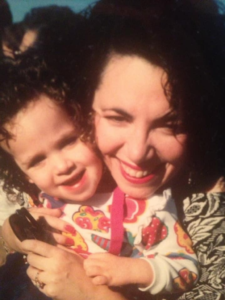Cyberbullying Resources for Parents and Caregivers
As caring and supportive adults, we aspire to guide youth toward becoming compassionate, understanding, and resilient individuals. In a world where social and emotional challenges ...
By ALANA KINGSLEY
Licensed Clinical Psychologist
 This year, more than any year in recent times, more people will experience their first Mother’s Day without their mother’s presence. For others, Mother’s Day symbolizes another year that has passed without their mother. As a result of the pandemic that has been sweeping the globe, many of us, whether our mothers are living or not, will be faced with the task of honoring the important women in our lives from afar. This, too, is grief. It’s important to remember that although we may not be able to spend Mother’s Day in the way we’d like to, there are means to express grief or display our affection from afar. The following is a list of various methods to cope and grieve during this uncertain and frightening time. Some of these methods are more attuned to individuals who have had their mother pass away, while others are meant for those with mothers who cannot be present with their living mothers.
This year, more than any year in recent times, more people will experience their first Mother’s Day without their mother’s presence. For others, Mother’s Day symbolizes another year that has passed without their mother. As a result of the pandemic that has been sweeping the globe, many of us, whether our mothers are living or not, will be faced with the task of honoring the important women in our lives from afar. This, too, is grief. It’s important to remember that although we may not be able to spend Mother’s Day in the way we’d like to, there are means to express grief or display our affection from afar. The following is a list of various methods to cope and grieve during this uncertain and frightening time. Some of these methods are more attuned to individuals who have had their mother pass away, while others are meant for those with mothers who cannot be present with their living mothers.
Above all else, remember to be gentle with yourself. There is no “best,” “right,” or “wrong” way to grieve, and with our options limited more than ever, it can be easy to get stuck and beat ourselves up for not being able to demonstrate love in the way that we’d like. The aforementioned methods are modes for self-care and for easing the grieving process, not obligations that must be done perfectly.
Dr. Alana Kingsley is a Licensed Clinical Psychologist practicing in Chicago, IL. She works primarily with adolescents, college students, and young adults on managing difficult emotions related to anxiety, depression, and grief. She holds a Doctorate Degree in Clinical Psychology, with an emphasis in Child and Adolescent Clinical Psychology. She can be reached at alana@midwestcounseling.com.
If you or someone you know needs to talk to someone right now, text, call, or chat 988 for a free confidential conversation with a trained counselor 24/7.
You can also contact the Crisis Text Line by texting HOME to 741-741.
If this is a medical emergency or if there is immediate danger of harm, call 911 and explain that you need support for a mental health crisis.